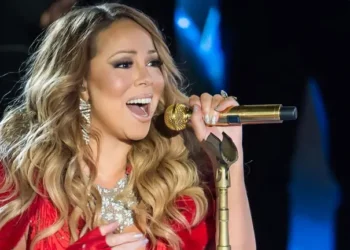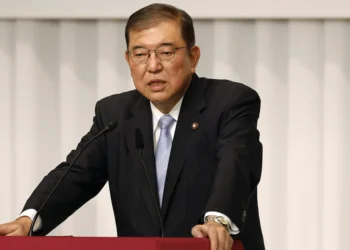Two years into his presidency, Bola Tinubu is doubling down on his economic overhaul, insisting his reforms are bearing fruit, despite widespread public frustration, soaring inflation, and fresh warnings from global institutions about Nigeria’s deepening crises.
Marking the milestone this week, Tinubu defended his administration’s bold economic measures, including the removal of fuel subsidies, electricity subsidy cuts, and two currency devaluations, decisions that have unleashed the country’s worst cost-of-living crisis in decades, with inflation now topping 23%.
“Our economic reforms are working. We are on course to building a greater, more economically stable nation.”
President Bola Tinubu
He described the policies as necessary to avoid economic collapse, claiming they helped prevent “runaway inflation, external debt default, and a plunging Naira and an economy in a free-fall.”
According to the president, the fiscal deficit dropped from 5.4% of GDP in 2023 to 3.0% in 2024, attributing this to improved revenue collection. He also claimed inflation was beginning to ease, although analysts point out this is due in part to a long-overdue rebasing of the consumer price index.
Economic Challenges Persist
Meanwhile, the World Bank acknowledged that Nigeria’s fiscal standing had strengthened recently but warned that high inflation continues to be a significant obstacle. Despite the government’s assurances, the consumer price index remains elevated, and the economic pain is still acutely felt by ordinary Nigerians.

On security, Tinubu claimed there had been notable progress. He said incidents of banditry in the northwest had decreased, roads had become safer, and farmers were “back tilling the land.” However, these statements appear at odds with reports from human rights groups and on-the-ground accounts. Amnesty International, in a report released last Thursday, stated that over 10,217 people have lost their lives due to armed violence since Tinubu assumed office.
Adding to the controversy, his All Progressives Congress (APC) party has already endorsed him for a second and final term, with the next election slated for early 2027.
The African Development Bank’s 2025 African Economic Outlook offered a cautiously optimistic take, noting that reforms since May 2023 have spurred growth. The services sector accounted for about 75% of the GDP growth. In addition, oil production rose by 2.8%, reaching 1.56 million barrels per day, while agriculture benefited from favorable domestic pricing.
GDP growth reached 3.4% in 2024, the highest outside the pandemic rebound, and is projected to rise to 3.7% in 2025. Nevertheless, inflation climbed to 33.2%, largely due to a 77% spike in fuel prices and a 42% currency devaluation. In response, the Central Bank raised its benchmark interest rate to 27.5%.
Moreover, poverty and insecurity cast a long shadow. The poverty rate has skyrocketed from 33.2% in 2020 to 47.2% in 2024, fueled by joblessness and limited social safety programs. Insecurity remains a severe concern, particularly in Benue and Plateau states, where attacks from bandits and insurgents continue. While gains have been made in battling Boko Haram in the northeast, new threats such as the Lakurawa terror group have emerged in the North Central region.
Despite these challenges, the Nigerian Police Force has pledged intensified operations in 2025, vowing to use intelligence-driven strategies and inter-agency cooperation to restore security. Authorities stress that public collaboration is essential in achieving these goals.
As Tinubu continues to push forward with his reform agenda, the interplay between economic growth and widespread insecurity will shape Nigeria’s future. Whether his policies will provide relief to millions or deepen existing divides remains a pressing question for the nation.
READ ALSO: Ibrahim Mahama Sues IMANI’s Veep for GHS10 M over Defamation



















